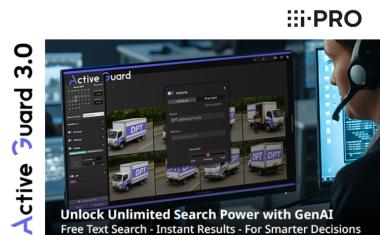BSIA welcomes publication of Home Office Security Industry Authority Review
The British Security Industry Association (BSIA) has welcomed the publication of the Security Industry Authority Triennial Review 2016 to 2017.The Review, conducted on behalf of th...
The British Security Industry Association (BSIA) has welcomed the publication of the Security Industry Authority Triennial Review 2016 to 2017.
The Review, conducted on behalf of the Home Secretary by Tony Regan, a senior official in the Crime, Policing and Fire Group in the Home Office, makes evidence based recommendations on how the delivery of the Private Security Industry (PSI) services can be improved in a way that brings benefits to the communities in which they are delivered, and to those who purchase such services. The Review’s recommendations address the questions of regulatory activity within the PSI, where it can add most value and what the effective regulations will look like over the next 5 to 10 years.
The majority of recommendations laid out in the report are strongly supported by the BSIA, aligning closely with the key lobbying positions on the following topics:
- retention of regulation for such a critical and sensitive industry,
- the merits of business licensing to ensure greater probity of security providers,
- the need for in-house security to be brought into the regulatory ambit - a particular imperative given the competitive imbalance and the potential higher risk to public safety posed by the absence of mandatory vetting of personnel.
The report also recommends that purchasers of security should be placed under a legal obligation for the quality of the private security that they procure.
The BSIA’s Chief Executive, James Kelly, was invited to join the Home Office Challenge Group overseeing the Review, and was able to put a number of the BSIA’s views to the Independent Reviewer. Particularly on the subjects of regulation and the industry’s value and contribution to the protection of people and assets.
Upon the release of the publication, James Kelly commented: “We welcome the belated publication of the Review, which was completed in 2016, and regret that it wasn’t published sooner, since it touches on a number of concerns held by the PSI for some time.”
“The Independent Reviewer’s report rightly observes that the PSI is a significant asset to UK safety and security. There is now a real opportunity to enhance the PSI contribution to public protection, safeguarding and national security. This supports BSIA’s efforts to champion the industry as a key partner to Police Forces, through the Police & Security (PaS) project supported by the National Police Chiefs’ Council, the Association of Police and Crime Commissioners, the National Business Crime Centre, and the SIA itself”.
“We have long been concerned about the risks posed by the absence of vetting and licensing for in-house security personnel, especially in these times of heightened threats. Placing legal obligations on purchasers, as exists in other industries, would also help maintain quality security provision, and better protect the UK’s citizens and businesses.”
“We now call on the Home Office to respond to these key proposals and to consult with the industry on their implementation without further delay. The PSI is an enormous resource for Police and Intelligence services collaboration, and often the first responder to incidents on Britain’s streets. We can help the fight against all forms of crime and are ideally placed to do so.”













